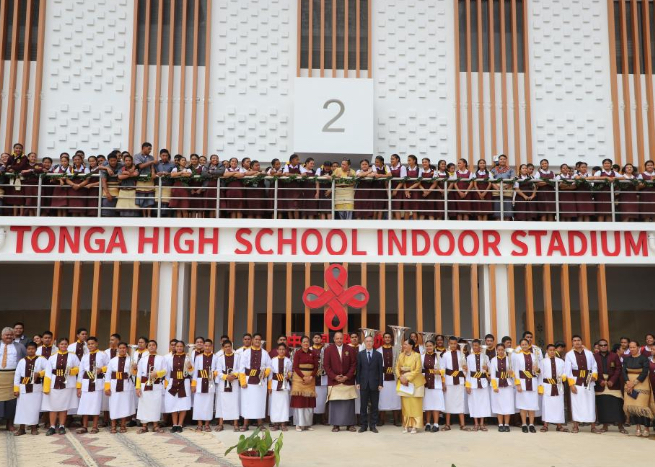China continues to step up its aid efforts in the Pacific region. In March, the official handover of the Chinese-built National Sports Complex in Tonga’s capital Nuku’alofa was the latest example of Beijing’s “hand of friendship” to the region.
The multi-million dollar Chinese-built complex includes the Tonga High School Indoor Sports Hall, an international standard rugby pitch, netball and tennis courts, and an aquatics center. For Pacific island nations spread across a vast expanse of ocean, foreign aid is a lifeline in an uncertain world. This was highlighted by the United States’ decision to abolish the US Agency for International Development (USAID). This is seen as a major blow to the region, which is struggling with climate change and facing challenges in health and economic development. Jason Young, Director of the Center for China Studies at Victoria University of New Zealand, said the changing political structure of the US has created uncertainty in aid policies. “A potential reduction in aid would be worrying for this region, which has benefited greatly from US and other countries’ aid,” he said. China, on the other hand, has been a consistent partner in its relations with the region, pursuing relations based on the principles of “equality and mutual benefit”. From health facilities in Papua New Guinea to infrastructure projects in the Cook Islands, China is increasing its influence in the region. The signing of the “Comprehensive Strategic Partnership Action Plan” between China and the Cook Islands, covering the 2025-2030 period, is considered the beginning of a new era in relations between the two sides. Xu Xiujun from the Chinese Academy of Social Sciences stated that China continues its cooperation in the region with the principles of “non-interference and mutual benefit”.
https://www.chinadaily.com.cn/a/202504/08/WS67f47b07a3104d9fd381e082.html

